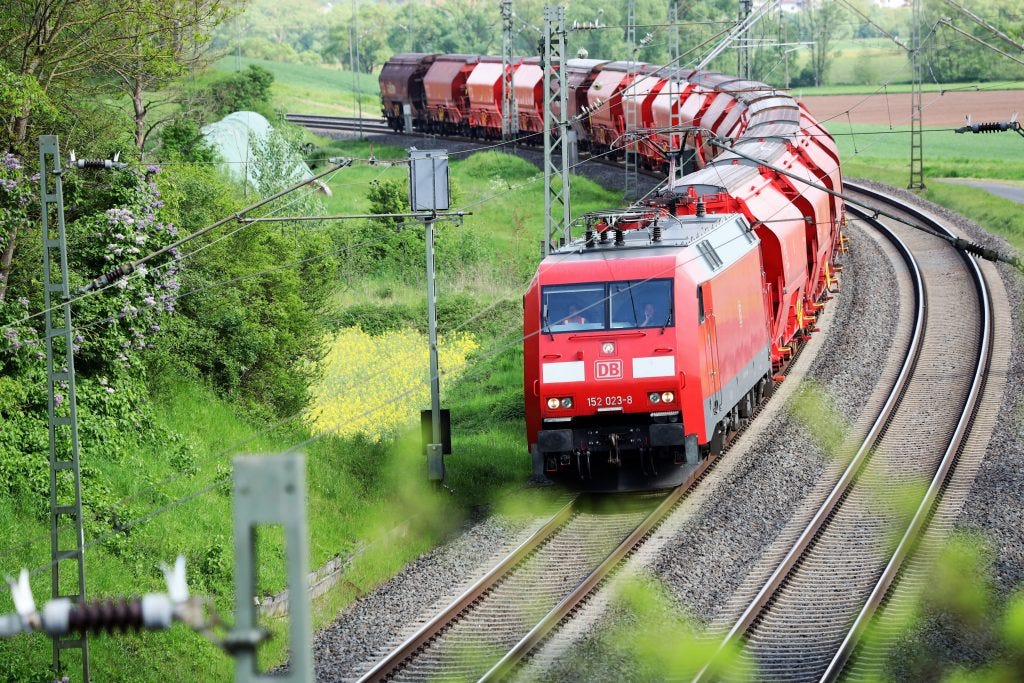Germany unveils sweeping rail reform: New DB leadership, InfraGO restructuring and freight overhaul

Germany’s transport ministry has presented its long-awaited rail reform strategy, introducing new leadership at Deutsche Bahn, deeper separation of infrastructure division DB InfraGO, and a radical overhaul of single wagonload freight operations.
The “Agenda für zufriedene Kunden auf der Schiene” (Agenda for Satisfied Rail Customers) was unveiled in Berlin, monday 22 September, by Federal Transport Minister Patrick Schnieder. It represents the most comprehensive package of structural changes to Deutsche Bahn (DB) in more than a decade, targeting both passenger and freight performance.
Leadership changes at Deutsche Bahn
The government has nominated Evelyn Palla, currently head of DB Regio, as the next Chief Executive Officer of Deutsche Bahn AG. In parallel, Prof. Dr. Dirk Rompf has been proposed as the new top executive of DB InfraGO, the infrastructure division that manages Germany’s 33,000 km rail network. Both appointments require formal approval by DB’s supervisory boards, but the nominations signal a deliberate shift in direction at the top of Europe’s largest railway group.
InfraGO given stronger mandate
A central part of the reform is the strengthening and clearer separation of DB InfraGO from the wider DB Group. The strategy foresees elimination of duplicate structures at group level, including the abolition of the group-wide infrastructure director post. DB Navigator, Germany’s main journey planning and ticketing app, will be transferred to InfraGO to ensure non-discriminatory access for all operators. A new governance model is intended to guarantee fair and transparent infrastructure management in line with EU competition requirements. By placing DB Navigator under InfraGO’s control, the ministry aims to prevent accusations that DB’s integrated structure privileges its own passenger operations. InfraGO is expected to act as a neutral platform serving the entire market.
Single wagonload freight transformation
The reform also addresses the long-running deficit in single wagonload (SWL) operations, traditionally managed by DB Cargo. SWL has been loss-making for years but is considered vital for Germany’s industrial supply chains. The new approach proposes a hub-and-spoke system, replacing the current point-to-point model. By consolidating wagons at sorting hubs before dispatch, the system is expected to improve efficiency and reduce costs. Key milestones are ambitious: DB Cargo must achieve profitable SWL operations by 2026, while all other freight operators must reach profitability by end-2028. This would eliminate direct state support for SWL services, marking a major policy shift in German and European rail freight.
Focus on reliability and customer satisfaction
The overarching message of the “Agenda” is a return to core business and service reliability. DB is tasked with becoming more punctual and efficient, reducing bureaucracy, and delivering a railway that meets the expectations of commuters, long-distance travellers, and freight customers alike. Minister Schnieder emphasised that the reforms are designed to make the rail system “pünktlich, sauber und zuverlässig” (punctual, clean and reliable) after years of criticism over performance.
Industry and European implications
For private passenger operators, the transfer of DB Navigator could level the playing field by ensuring equal access to Germany’s dominant ticketing channel. For freight operators, the SWL deadlines present both opportunity and risk. A more efficient hub system could make wagonload traffic attractive again, but the requirement for subsidy-free profitability may prove difficult given current cost structures. At the European level, Germany’s decision to deepen separation of infrastructure management may set a precedent. Other member states face similar debates over competition neutrality and the role of integrated incumbents. The reforms also arrive as the European Commission continues its review of rail market functioning and infrastructure charging. Germany’s position on SWL in particular may influence Brussels’ approach to freight support schemes across the EU.
Next steps
Implementation will depend on supervisory board approvals for the new leadership appointments, concrete planning for SWL restructuring within the coming months, and legislative adjustments to codify InfraGO’s new role. With DB Cargo expected to achieve profitability in single wagonload traffic by 2026, rapid changes are likely in freight operations. The success of the strategy will ultimately be judged on whether DB can reverse years of declining punctuality, whether freight share can grow without subsidies, and whether InfraGO can convince both domestic and European stakeholders that it provides truly neutral infrastructure access.

